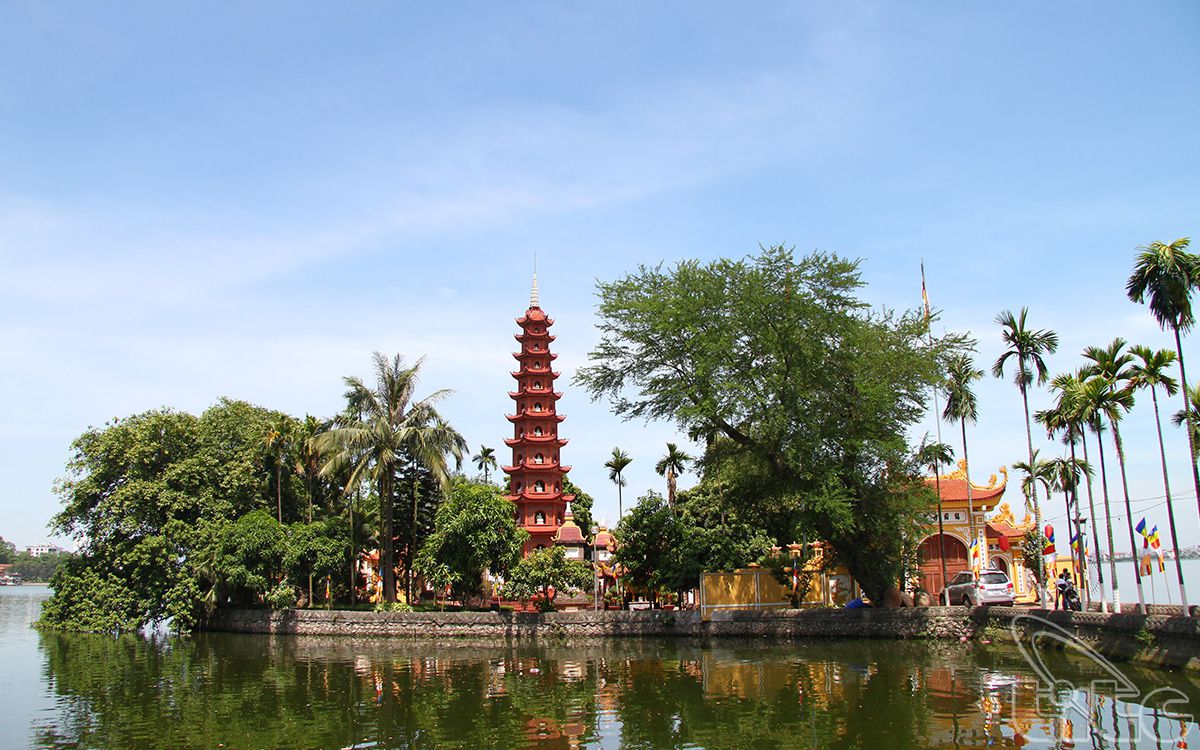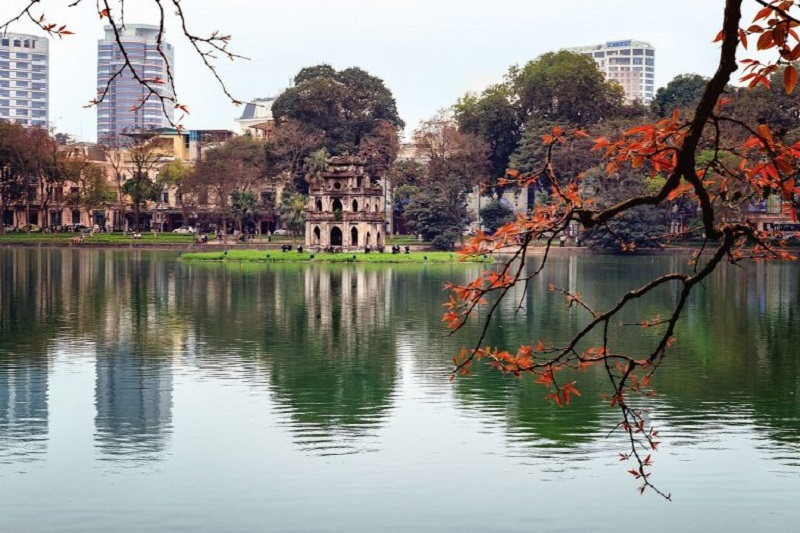Through many ups and downs of history, Hanoi’s downtown today still remains the ancient parts in the modern city with unique identity, thanks to culture and architecture works of the land of thousands of years.
Quan Chuong Gate - Precious wonder
 |
|
O Quan Chuong is one of the 21 remaining gates of the old Thang Long Imperial Citadel/ Photo: Ho Ha
|
Quan Chuong Gate is located on O Quan Chuong street, at the beginning of Hang Chieu street. Its front looks to the East and the Red River and its back looks to the West and Hang Chieu Street. It has the typical arch and a watching guard, the typical architecture of that period. The archway still has one main arch and two side arches. It is also called Thanh Ha Gate because it is located in Thanh Ha village in the old time.
Quan Chuong was the title of the leader of the guard team in the old time, which was named for the gate to commemorate the one who led over 100 guards to fight against the first attack of French troops in Hanoi at the gate on November 20, 1873.
Long Bien Bridge - "Iron Dragon" crossing Red River
 |
|
Long Bien bridge is considered as the horizontal Eiffel Tower in the heart of Hanoi/ Photo: hanoi1000.vn
|
Construction of Long Bien bridge started in 1899 and completed in 1902, as part of the transport network development of the French colonial regime in Indochina. Since its launching, Long Bien has been considered a symbol of science, technology and art of architecture in the early twentieth century.
At that time, Long Bien was the largest steel bridge in Southeast Asia, and the second longest bridge in the world (only after the Brooklyn Bridge spanning the East-River of America).
Long Bien bridge inherits technical advances in construction science in Europe at the time, especially its steel structure. In addition, its architectural and structural form is durable enough to cross the Red River, creating beautiful sight that is compared to a dragon or a silk crossing the Red River or the horizontal Eiffel Tower in the heart of Hanoi.
It has become one of the outstanding sites of Hanoi, attracting millions of local and international tourists to visit every year.
Hanoi Opera House - "Temple" for classical art
 |
|
Hanoi Opera House's construction is following the model of the Opéra Garnier Theater in Paris Photo: hanoi100.vn
|
The Hanoi Opera House is located on the August Revolution Square, 1A Trang Tien Street, Hoan Kiem District, Hanoi. Its construction was initiated by the French in 1901 and completed in 1911, following the model of the Opéra Garnier Theater in Paris.
Although it is an architectural work mixed with many styles, the Hanoi Opera House still features French neoclassical look and becomes a familiar and typical image of Hanoi. The Opera House is the birthplace of Vietnamese theater as well as other types of art such as symphony, music and dance.
Today, the Opera House is one of the most important performing venues in Hanoi, considered by artists as a "temple" f cultural heritages, Hanoi Opera House has become a witness to a historical period of the city when different cultures converge.
Nhat Tan Bridge - the largest steel cable-stayed bridge in Vietnam
 |
|
Not only beautiful by its modern architecture, Nhat Tan Bridge is also installed with modern lighting system Photo: Kinh te & Do thi
|
Nhat Tan Bridge, together with Thang Long bridge, Long Bien bridge, Chuong Duong bridge, Thanh Tri bridge, Vinh Tuy bridge, and Dong Tru bridge are seven main bridges of Hanoi capital. Among them, Nhat Tan Bridge is the largest steel cable-stayed bridge in Vietnam, considered a new symbol of Hanoi.
Nhat Tan Bridge has a total length of 9.17km, connecting one of the city’s main districts of Tay Ho with Dong Anh district across Red River. The bridge was inaugurated and put into use from January 2015 after nearly six years of construction.
The structure of the bridge is a modern type of the world with five main towers connecting the cable-stayed spans to support the entire main part of the bridge. These five towers represent five ancient gates of Hanoi in the old time. It is named after the area where it is located, famous with peach growing trade.
Not only beautiful by its modern architecture, Nhat Tan Bridge is also installed with modern lighting system. At night, the bridge wears a new multi-color as the light brightens the whole river. This beautiful place has become the dating spot of many young people in the capital. Hanoitimes

Hanoi’s landmarks stand the tests of time - The extraordinary heritages
Through many ups and downs of history, Hanoi’s downtown today still remains the ancient parts in the modern city with unique identities.

Hanoi’s landmarks stand the tests of time - The holly relics
Founded over thousand years ago, Hanoi capital grew from swamplands into the charismatic city as it is today with hundreds of historical architecture works.